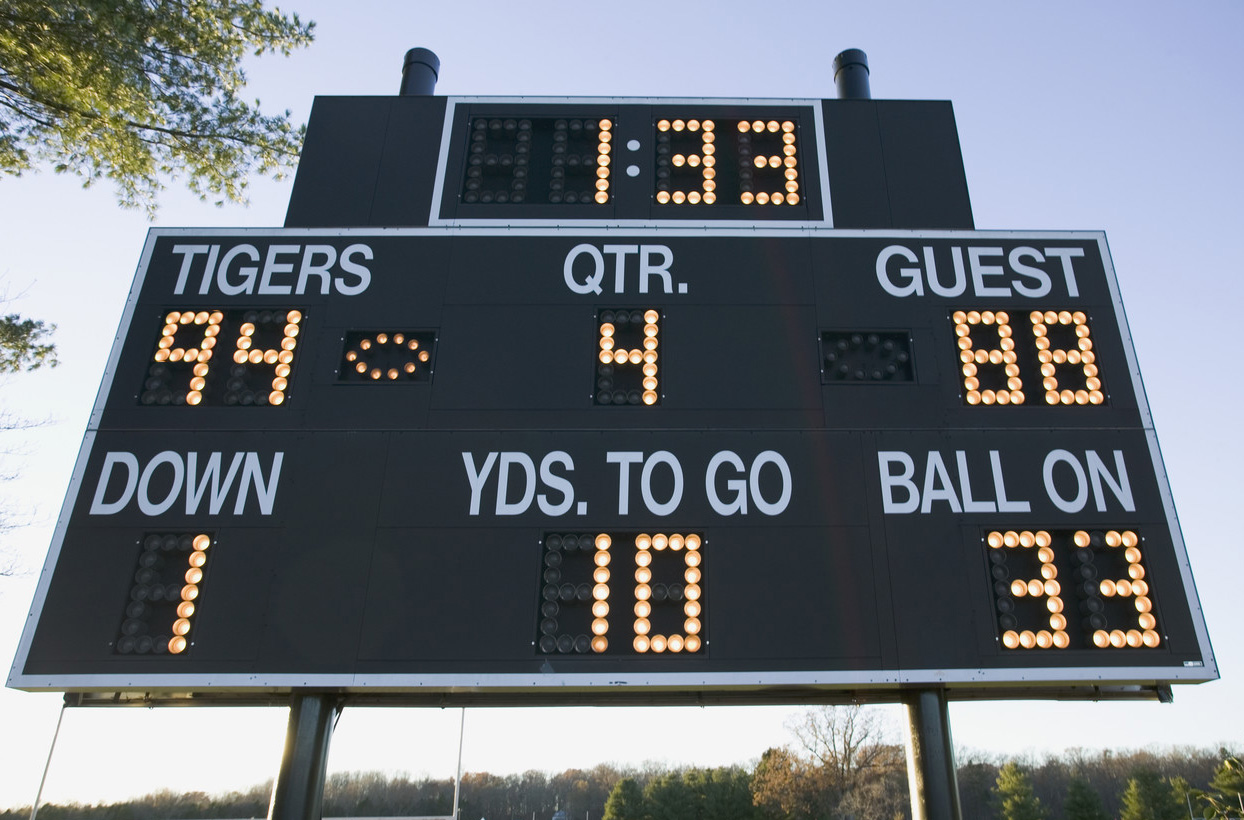An Offensive Era: Where Has All The Defense Gone?

 The Steel Curtain. The Purple People Eaters. The Orange Crush. The ’85 Bears. The Gang Green Eagles.
The Steel Curtain. The Purple People Eaters. The Orange Crush. The ’85 Bears. The Gang Green Eagles.
For most of its existence, the National Football League had been ruled by dominant defenses with awesome nicknames. But over the last 20 years, the NFL, as well as other major sports, has seen a major shift in the other direction — just without the cool nicknames (save for the “Greatest Show on Turf” Rams) — and dominating defenses have joined the fullback position and first-round running backs on the league’s endangered species list.
Sure, the Seattle Seahawks convincingly won a championship on the strength of their throwback defense — so much so it was deemed the “Legion of Boom” — but their dominating ‘D’ is more of an anomaly as the NFL continues its ongoing effort to increase scoring. Consider some of the changes the NFL has made over the last decade:
- Numerous rule changes to protect quarterbacks
- Limiting the point of contact for defenders
- Emphasizing illegal contact and defensive holding
That last point has really been driven home early this season, as the league’s crackdown on contact by defensive backs — which is the NFL seemingly “course correcting” for the Seattle secondary — has yielded a historic number of penalties and near-all time scoring levels. But is this a good thing?
In terms of player safety, absolutely, as the majority of those rules were implemented or changed to protect players — particularly the banning of hits with the crown of the helmet. But not all of the changes were made altruistically. The NFL, and others, wants to increase scoring, because that’s what the casual fan wants to see. It makes games (seemingly) more exciting and it boosts the entertainment value of fantasy sports — something pointed out by Seattle’s star cornerback Richard Sherman last year. There’s a reason 99% of fantasy football leagues exclusively use offensive players.
Is this necessarily best for the game? Is this even what we really want? Yes, low scoring games may drag on at times, but isn’t the effort, strategy and intensity it takes for a defensive unit to post a shutout in an NHL game just as thrilling and enjoyable as watching Nick Foles throw 7 TDs in one NFL game?
And it’s not just the NFL. Defense seems to be disappearing across the wide world of team sports.
The NHL, for example, has also taken steps over the last decade to increase offense by limiting the effectiveness of defense. The league legalized two-line passing in 2005, allowing offenses to further stretch the ice and created the restricted goalie play area to let offensive players get to pucks dumped into the zone quicker and without interference from the goaltender. Like the NFL, the NHL has also gone out of their way to crack down on defensive obstructions and the “clutching and grabbing” that used to be a major part of defense. How and when a defensive player can contact an offensive player has continued to be a focus of the NHL Competition Committee. This season, the NHL is putting an emphasis on tripping penalties and altered rules to allow for more faceoffs in the offensive zone.
Last year, NCAA Lacrosse instituted a 30-second stall clock, forcing an offense to make an attempt to score and not allowing them to stall, essentially playing defense with their offense. The NBA is constantly tinkering with defensive rules to increase scoring. Even Major League Baseball is considering a crack down on the defensive shift for 2015.
It’s no mystery that the sports we know and love are rapidly changing — as athletes, equipment, training and player safety continue to evolve — but the games themselves are becoming almost unrecognizable, particularly professional football. Gone are the days of fundamentals and inspiring defensive strategy; sports are becoming superficial games of point scoring and offensive displays.
Defense might win championships, but offense wins everything else.
As a fan of sports and a teacher of fundamentals, what do you think about the disappearance of defense in professional sports? Do you prefer high-scoring offenses to hard-nosed defenses? Let us know in the comments.






